Index relies entirely on the support of donors and readers to do its work.
Help us keep amplifying censored voices today.

From top left: Arif Yunus, Rasul Jafarov, Leyla Yunus, Khadija Ismayilova, Intigam Aliyev and Anar Mammadli – some of the government critics jailed on trumped up charges in Azerbaijan
Social media users have hijacked the hashtag #HelloBaku to draw attention to human rights and free speech violations in Azerbaijan ahead of this summer’s inaugural European Games in the capital Baku.
Baku 2015 organisers launched the hashtag contest on 4 March 2015, as part of a promotional push ahead of the games, which start on 12 June. Social media users were invited to enter by posting a photo or video of themselves holding a sign with #HelloBaku written on it. The winner, set to be announced this week, will be awarded two tickets to the opening ceremony, as well as a night at a luxury hotel and flights.
Post a photo of you saying #HelloBaku to win tickets to @BakuGames2015 opening ceremony! ✈️ http://t.co/2VMRbqux92 pic.twitter.com/CURPEEa0AL
— 2015 European Games (@BakuGames2015) March 20, 2015
But the campaign backfired, as a number of social media users instead used #HelloBaku to highlight Azerbaijan’s poor record on human rights. According to the latest estimates, there are over 100 political prisoners in the country. Since last summer, authorities have been engaged in an unprecedented onslaught against its most prominent critics, jailing investigative journalist Khadija Ismayilova, pro-democracy activist Rasul Jafarov, human rights lawyer Intigam Aliyev and others on trumped up charges. On 9 April, prosecutors asked for a 9-year sentence for Jafarov, who stands accused of tax evasion and malpractice, among other things.
#HelloBaku hashtag seems to have drawn more attention to Azerbaijan’s record of alleged rights abuses than its hosting of European Games — Thomas Grove (@tggrove) April 4, 2015
#HelloBaku: Free jailed activists and journalists so Index’s @jodieginsberg can say hello to them too pic.twitter.com/dy8q3lzni4
— Index on Censorship (@IndexCensorship) March 31, 2015
.@biginbaku What else is on offer in #HelloBaku? Journalists, bloggers in prison, crackdown on government critics. pic.twitter.com/rKx9AwTCPs — Wenzel Michalski (@WenzelMichalski) March 26, 2015
#HelloBaku @amnesty: “No one should be fooled by glitz & glamour…#Azerbaijan is putting on” http://t.co/Ekz1JFGUIO pic.twitter.com/dqTd5wBt68 — Kate Nahapetian (@KN87) March 23, 2015
My friend @Khadija0576 is in prison. Human rights worker Leyla Yunus, Prof Intigam Aliyev are in prison. Give them a ticket out. #HelloBaku — Shabnam (@Peaceweet) March 24, 2015
Must-read for @UNICEF @BP_plc @CocaCola http://t.co/N22wvofeRF #HelloBaku + video with @dinarayunus https://t.co/iZTYgxl79r #Baku2015 — Jan Kooy (@KooyJan) April 7, 2015
#HelloBaku: Big court day today; @rasuljafarov & lawyer Khalid Bagirov in court now and at 15:00 IRFS will be in court #Azerbaijan — Human Rights Houses (@HRHFoundation) April 9, 2015
#HelloBaku: European Olympic Committee Urged to Press #Azerbaijan’s Crackdown on Opposition https://t.co/Le6O2s7deg #Baku2015 #EuropeanGames — Ani Wandaryan (@GoldenTent) April 7, 2015
Trial in the case of Intigam Aliyev #Azerbaijan #HelloBaku #RealBaku2015 #SportForRight #FreeIntigam #HelloBaku http://t.co/p1XMyLcve0 — HUMAN RIGHTS (@azhumanrights) April 9, 2015
#HelloBaku, Hello From Prison. #realBaku2015 #Azerbaijan #Baku2015 #freeLeyla #freeKhadija https://t.co/fNDKVEckWI pic.twitter.com/jeSZqezllj — STOPREPRESSIONS (@stoprepressions) April 3, 2015
5 April 2015 #Azerbaijan‘i opposition holds rally. #Baku2015 #HelloBaku #RealBaku2015 #SportForRights #Talanason pic.twitter.com/uWQ4hjNRLB — AXCP PRESS CENTER (@A_X_C_P) April 6, 2015
New sport and rights coalition calls for prisoner releases ahead of #BakuGames #Azerbaijan #HelloBaku http://t.co/24KREfFc2P — Nizami Abdullayev (@NizamiHR) April 9, 2015
Prisoner of conscience Leyla Yunus ill in prison. #Azerbaijan should free her now. #HelloBaku? http://t.co/PY31EFNF6T pic.twitter.com/PpzmJXkvxv — Andrew Stroehlein (@astroehlein) March 24, 2015
#HelloBaku Azerbaijan: release of all prisoners of conscience https://t.co/d1GM0dHQNN #Baku2015 pic.twitter.com/4xG9Y3K58q — Amnesty NL (@amnestynl) March 23, 2015
in Azerbaijan have 101political prisoners !Guys people do not need these Olimpic @BakuGames2015 !The people in terrible condition #HelloBaku — Sevinj NM (@SevinjNM) April 7, 2015
Love this photo, which captures the contrasts of life in #Baku, #Azerbaijan via @MeydanTV #HelloBaku pic.twitter.com/7v5LDz2cxo — Rebecca Vincent (@rebecca_vincent) March 22, 2015
On 30 March, the same day the contest closed, Human Rights Watch researcher Giorgi Gogia, who was set to attend the trial hearing of Aliyev and Jafarov, was blocked from entering Azerbaijan. Traveling from his native Georgia, Gogia does not require a visa to go to Azerbaijan. Despite this, his passport was taken away and he was held at the Heydar Aliyev International Airport in Baku for 31 hours without explanation, before being sent back to Tbilisi.
My account of 31-hour ordeal at #Baku airport. Happy to be home, but sad for jailed rights defenders in #Azerbaijan https://t.co/qmKF9yhiRM — Giorgi Gogia (@Giorgi_Gogia) March 31, 2015
Repression in #Azerbaijan no #AprilFools joke: @HRW‘s @Giorgi_Gogia airport ordeal https://t.co/ww4CBuTEa3 #HelloBaku pic.twitter.com/aihfMV2zSu — Minky Worden (@MinkysHighjinks) April 1, 2015
Will @BakuGames2015 RT this latest on #Azerbaijan‘s crackdown on human rights? http://t.co/swQttNqru1 #HelloBaku pic.twitter.com/vwlVzVzg8J — EmmaDaly (@EmmaDaly) April 1, 2015
Azerbaijan’s authorities, led by President Ilham Aliyvev, have been accused by human rights groups of running an expensive international PR operation to whitewash rights violations, and present the country as a “modern, outward looking state“. According to the Baku European Games Operation Committee (BEGOC), the games will “showcase Azerbaijan as a vibrant and modern European nation of great achievement”.
#HelloBaku MT @GoldenTent: #EuropeanGames aren’t sporting event but expensive propaganda – @eminmilli http://t.co/oW6fQ8BoRa #Azerbaijan — Florian Irminger ✏️ (@FlorianIrminger) April 6, 2015
London-based marketing firm 1000heads, whose clients include Yahoo, Procter & Gamble and Lego, worked with Baku 2015 organisers on #HelloBaku. Index contacted 1000heads to ask whether they were aware of criticisms against Azerbaijan’s human rights record before taking on the job, and their response to the hijacking of the hashtag.
“We were working with BEGOC, the Baku European Games Operation Committee, which is responsible for delivering the event for athletes from the 49 National Olympic Committees of Europe. We are no longer involved,” 1000heads CEO Mike Rowe said in an email.
This article was posted on 8 April 2015 at indexoncensorship.org
Index presented a special award at its 15th Freedom of Expression Awards – to a group of people in Azerbaijan not able to join us to collect it.
Over the past eight months, Azerbaijani authorities, under the leadership of President Ilham Aliyev, have been engaged in relentless persecution of their most prominent and vocal critics. It started with the arrests this summer of human rights activists Leyla and Arif Yunus, quickly followed by that of their colleague Rasul Jafarov. Then came the detention of lawyer Intigam Aliyev and journalist Seymur Hezi. In December, investigative reporter Khadija Ismayilova was also imprisoned. Press freedom advocate Emin Huseynov has been hiding in the Swiss embassy in Baku, fearing the same could happen to him.
These are people who have dedicated their time and energy to serve on the frontline of the fight for human rights. Leyla Yunus helps those who have been forcibly evicted from their home and works with activists in the South Caucasus region, including Armenia, the country with which Azerbaijan is locked in a frozen conflict. Rasul Jafarov was behind Sing For Democracy, a campaign to highlight rights abuses as Baku hosted the Eurovision Song Contest in 2012. Intigam Aliyev has represented victims before the European Court of Human Rights. Seymur Hezi provided critical coverage both as a reporter for Index award winning newspaper Azadliq, and in the online show Azerbaijan Hour. Khadija Ismayilova has on multiple occasions uncovered corruption connected to the ruling Aliyev clan.
Today, they are all languishing behind bars, on trumped up charges ranging from treason to tax evasion. The whole sorry affair is perhaps most aptly summed up by the dark irony of Leyla Yunus and Jafarov being in the process of compiling a list of political prisoners, when they themselves were added to it.
It is estimated that some 100 people are currently jailed in Azerbaijan over their political beliefs. Because it is worth remembering that while the past months’ crackdown has seemed especially ruthless, comprehensive and unapologetic in its bid to silence critical voices, these tactics are not new. For years, those daring to speak out against the ruling elite have been threatened, harassed, arrested and even killed.
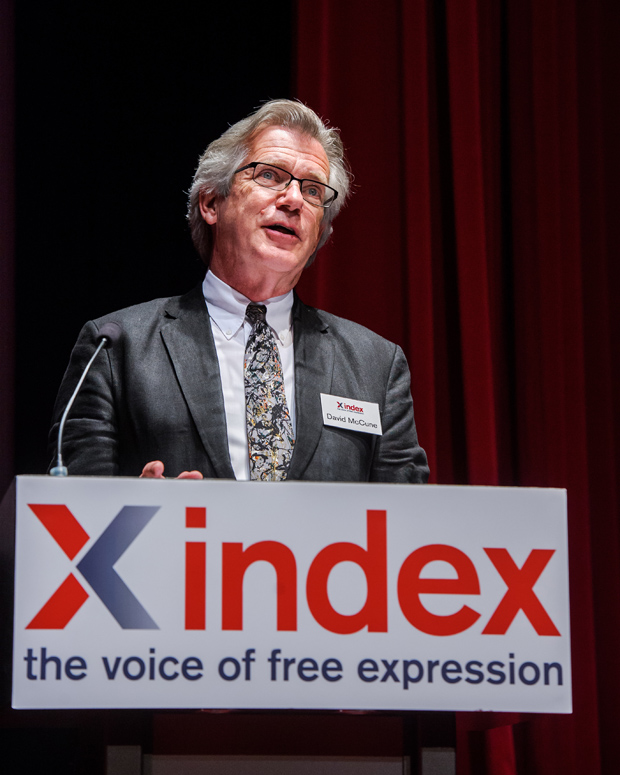
Index board member and director of Sage Publications David McCune presented the special award at the ceremony in London (Photo: Alex Brenner for Index on Censorship)
Journalist and activist Idrak Abbasov was brutally beaten by security forces and police in a 2012 attack. He accepted the special award from Oslo, where he now lives in exile, on behalf of his compatriots. “In Azerbaijan, not a single television or radio channel is free. In effect, all media are under government control with the exception of a few newspapers and the Internet. There is no freedom of expression or association,” Abbasov said in a pre-recorded speech. “There are no free elections. The country is ruled by a terrible regime. Freedom of speech has been completely stifled. Our colleagues have been murdered. Elmar Huseynov was killed in 2005. Novruzali Mamedov was murdered in prison in 2009. Rafiq Tagi was killed in 2014. No one has been called to account. Many journalists have been brutally and repeatedly beaten, and no one has been punished. This is Azerbaijan. This is the horrific way the country is being ruled.”
The eyes of the world will soon again be fixed on Azerbaijan. The inaugural European Games – organised by Europe’s Olympic Committees – are coming to Baku this summer, not long after the capital last hosted an international mega-event, the 2012 Eurovision final. The line pushed by the regime, and parroted by their supporters at home and abroad, is that this is young and developing democracy on the right path. But three years on, the situation has not improved; on the contrary. This award is for Azerbaijanis continuing their struggle for freedom, rights and dignity – in the hopes that it will soon be won.
Idrak Abbasov summarised his hopes for the future in his closing remarks: “I call upon the world community to help Azerbaijan and freedom of speech in Azerbaijan. So that our colleagues might be released. So that our country might become a normal country in which we and others might live freely.”
Related
• Index announces winners of 15th annual Freedom of Expression Awards
• Safa Al Ahmad: Facts are a precious commodity in Saudi Arabia
• Rafael Marques de Morais: I believe in the power of solidarity
• Amran Abdundi: This award is for the marginalised women of northern Kenya
• El Haqed: I will fight for freedom, equality and human rights for ever
• Tamas Bodoky: The independence of journalism in Hungary is under threat
• Video: Comedian Shappi Khorsandi hosts Index on Censorship awards
• Drawing pressure: Cartoonists react to threats to free speech
This article was posted on Wednesday March 18 2015 at indexoncensorship.org

From top left: Arif Yunus, Rasul Jafarov, Leyla Yunus, Khadija Ismayilova, Intigam Aliyev and Anar Mammadli
With the arrival of the European Union special representative for human rights in Azerbaijan, the country has a unique opportunity to adhere to the international commitments it has signed by releasing detained and imprisoned journalists and human rights defenders.
“We have seen a marked deterioration in the human rights situation in Azerbaijan in recent months. A host of prominent reporters and civil society activists, who play a vital role in holding government to account, have been arrested and their voices silenced. The EU can — and should — do much more to hold Azerbaijan to account,” said Index CEO Jodie Ginsberg.
The special representative, Stavros Lambrinidis, is in the country at the invitation of the Azerbaijani government.
The visit comes as the pre-trial detention of Arif Yunus, a human rights defender, was extended an additional five months. Arrested just days after his wife, Leyla Yunus, on 5 August 2014, Arif Yunus is facing charges of state treason and fraud.
Index recommends that Lambrinidis seek a more balanced view of the human rights situation in Azerbaijan by securing meetings with both Arif and Leyla Yunus, human rights and democracy activist Rasul Jafarov, Anar Mammadli and Bashir Suleymanli, human rights lawyer Intigam Aliyev and journalists Khadija Ismayilova and Seymur Hezi. Mammadli, Suleymanli and Hezi are currently serving prison terms, while the others are in pre-trial detention. Lambrinidis should also visit the the Swiss embassy, where journalist and human rights activist Emin Huseynov has been forced to take refuge from the ongoing crackdown on civil society.
Related:
In January, Index on Censorship reported on the beginning of the trial of human rights activist Rasul Jafarov, who is being tried on spurious charges. The Azerbaijani embassy has written to Index on Censorship responding to that article. This is the Index response to the embassy.
Dear Ambassador Tahir Taghizadeh,
Thank you for your letter in response to our report on the beginning of the trial of human rights and democracy activist Rasul Jafarov.
In your letter, you wrote:
“In my country, human rights and fundamental freedoms are ensured in full compliance with the national and international commitments that Azerbaijan has subscribed to. No one is persecuted for his/her political views and activities as proved by Azerbaijan’s vibrant political process and free and diverse media.”
We beg to differ with your point of view.
Azerbaijan’s record on human rights and a free press has been discussed with great concern at the international level many times in recent years.
In March 2012, Index on Censorship joined with Article 19, Human Rights House Foundation, International Federation of Journalists, Media Diversity Institute, Norwegian Helsinki Committee, Reporters Without Borders and World Association of Newspapers and News Publishers to co-produce Running Scared: Azerbaijan’s Silenced Voices. The report opened with this stark warning: “The current state of freedom of expression in Azerbaijan is alarming, as the cycle of violence against journalists and impunity for their attackers continues; journalists, bloggers, human rights defenders and political and civic activists face increasing pressure, harassment and interference from the authorities; and many who express opinions critical of the authorities – whether through traditional media, online, or by taking to the streets in protest – find themselves imprisoned or otherwise targeted in retaliation.”
In December 2012, the Parliamentary Assembly of the Council of Europe issued a monitoring report that included the comments that the “situation with regard to basic freedoms, including freedom of expression, freedom of assembly and freedom of association is preoccupying. The committee expresses its alarm at reports by human rights defenders and domestic and international NGOs about the alleged use of so-called fabricated charges against activists and journalists. The combination of the restrictive implementation of freedoms with unfair trials and the undue influence of the executive results in the systemic detention of people who may be considered prisoners of conscience. Alleged cases of torture and other forms of ill-treatment at police stations, as well as the impunity of perpetrators, raise major concern”.
In April 2013, the Human Rights Council of the United Nations work group issued its report from Azerbaijan’s universal periodic review. Among the recommendations were suggestions for improvements on human rights and more specifically freedom of expression:
• Ensure the full enjoyment of the right to freedom of expression in line with country’s international commitments (Slovakia)
• Guarantee the rights to freedom of expression, association and peaceful assembly particularly by allowing peaceful demonstrations in line with the obligations stemming from the International Covenant on Civil and Political Rights (Switzerland);
• Put in place additional and fitting measures to ensure respect for freedom of expression and of the media (Cyprus);
• Ensure that Azerbaijani media regulations uphold diversity among media outlets, as per international standards and best practices (Cyprus);
• Expand media freedoms across print, online and, in particular, broadcast platforms, notably by ending its ban on foreign broadcasts on FM radio frequencies and eliminating new restrictions on the broadcast of foreign language television programs (Canada);
• Take effective measures to ensure the full realization of the right to freedom of expression, including on the Internet, of assembly and of association as well as to ensure that all human rights defenders, lawyers and other civil society actors are able to carry out their legitimate activities without fear or threat of reprisal (Czech Republic);
• Ensure that human rights defenders, lawyers and other civil society actors are able to carry out their legitimate activities without fear or threat of reprisal, obstruction or legal and administrative harassment (Sweden);
• Put an end to direct and indirect restrictions on freedom of expression and take effective measures to ensure the full realization of the right to freedom of expression and of assembly (Poland);
• Ensure the full exercise of freedom of expression for independent journalists and media, inter alia, by taking into due consideration the recommendations of the Council of Europe Commissioner for Human Rights (Italy);
• Ensure that journalists and media workers are able to work freely and without governmental intimidation (Germany);
• Ensure that journalists and writers may work freely and without fear of retribution for expressing critical opinions or covering topics that the Government may find sensitive (Slovenia);
• Protect and guarantee freedoms of expression and association in order to enable human rights defenders, NGOs and other civil society actors to be able to conduct their activities without fear of being endangered or harassed (France);
• Strengthen measures to guarantee a safe and conducive environment for the free expression of civil society (Chile);
• Remove all legislative and practical obstacles for the registration, funding and work of NGOs in Azerbaijan (Norway);
• Ensure that all human rights violations against human rights defenders and journalists are investigated effectively and transparently, with perpetrators being promptly brought to justice, including pending unresolved cases requiring urgent attention (United Kingdom);
• Ensure prompt, transparent and impartial investigation and prosecution of all alleged attacks against independent journalists, ensuring that
the media workers do not face reprisals for their publications (Slovakia);
Though Azerbaijan has the modern legal framework in place to respond to these suggestions from the international community, the respect for the rule of law is sorely lacking.
In October 2013, Index on Censorship published Locking up free expression: Azerbaijan silences critical voices, which described the situation in your country in the run up to the presidential elections.
We wish that was the end of the story, that our insistence that Azerbaijan respect free of expression was based on outdated information or thoroughly implemented international recommendations.
But in 2014 the assault against journalists and human rights activists accelerated with detentions of well-respected individuals with international profiles and the temerity to speak some uncomfortable truths to the government of Azerbaijan.
These are just a few of the cases against journalists and human rights activists that we follow:

Anar Mammadli and Bashir Suleymanli
Anar Mammadli and Bashir Suleymanli — sentenced to 5.5 and 3.5 years respectively in May 2014 — are prominent human rights activists and founders of the Election Monitoring and Democracy Studies Centre. They were arrested and jailed in 2013, following outspoken criticism of presidential elections in October 2013, despite international protests. Those are the same polls that invited election observers from the OSCE found lacking. On 29 September 2014, Mammadli was awarded the Václav Havel Award for Human Rights by the Council of Europe.
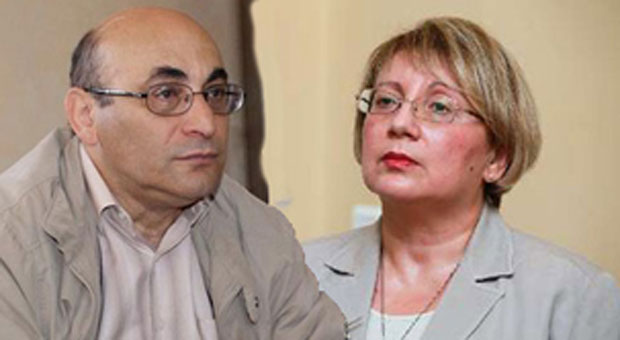
Arif and Leyla Yunus (Photo: HRHN)
Leyla Yunus — arrested 30 July 2014 — is the director of the Peace and Democracy Institute, which among other things works to establish rule of law in Azerbaijan. She has been charged with state treason (article 274 of the Criminal Code of the Republic of Azerbaijan), large-scale fraud (article 178.3.2), forgery (article 320), tax evasion (article 213), and illegal business (article 192). On 18 February, her pre-trial detention was extended for another five months. Her husband Arif Yunus was arrested 5 August 2014. Arif Yunus is facing charges of state treason and fraud. Both have had their initial three month pre-trial detentions extended.
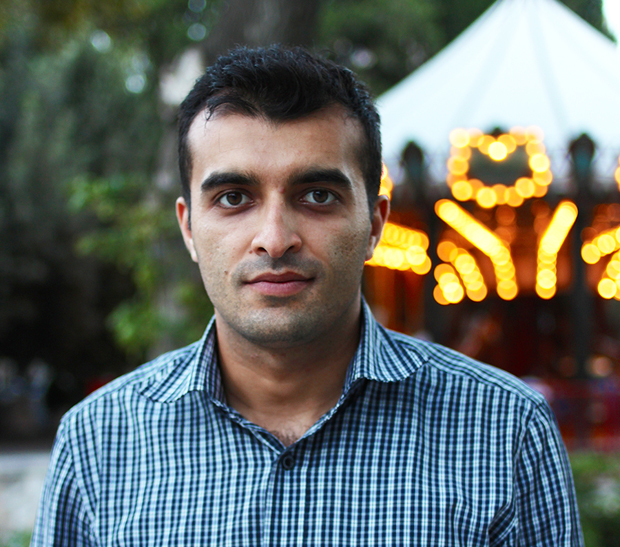
Human rights and democracy activist Rasul Jafarov (Photo: Melody Patry)
Rasul Jafarov — arrested 2 August 2014 — one of the initiators and coordinators of the campaign “Sing for Democracy” and “The Art of Democracy”, advocated for the rights of political prisoners, actively participated in the International Platform “Civil Solidarity.” He is accused of: tax evasion (Article 192), illegal business (Article 213) and malpractice (Article 308). The charges carry a possible sentence of 12 years.
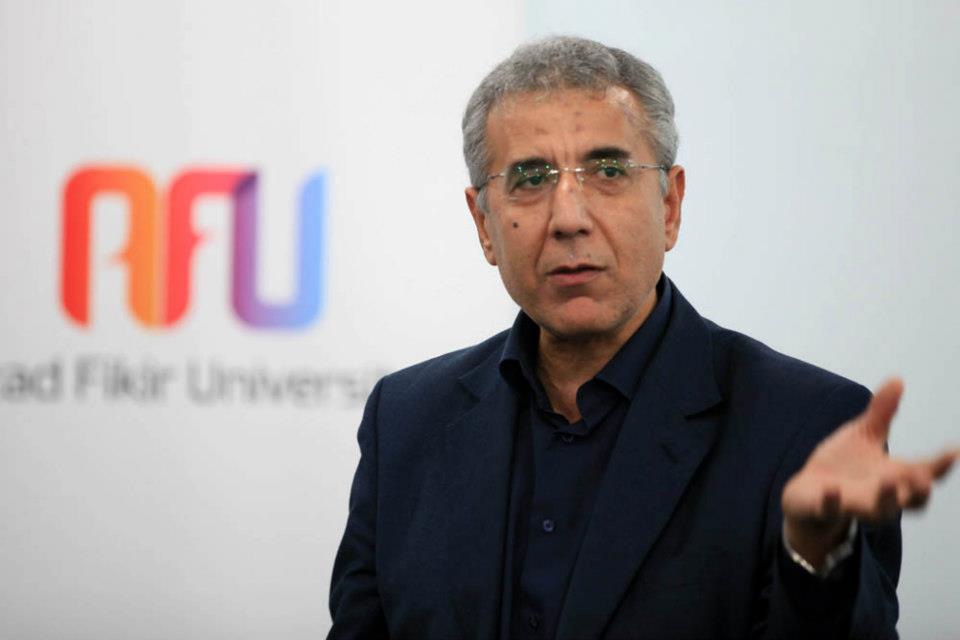
Lawyer Intigam Aliyev
Intigam Aliyev — arrested 8 August 2014 — is a human rights defender and a lawyer specialized in defending rights of citizens in the European Court of Human Rights. He is charged with Articles 213.1 (tax evasion), 308.2 (malpractice) и 192.2 (illegal business) of the Criminal Code. Index was heartened to hear that Aliyev was at least allowed to sit with his lawyers in court on Feb 3.
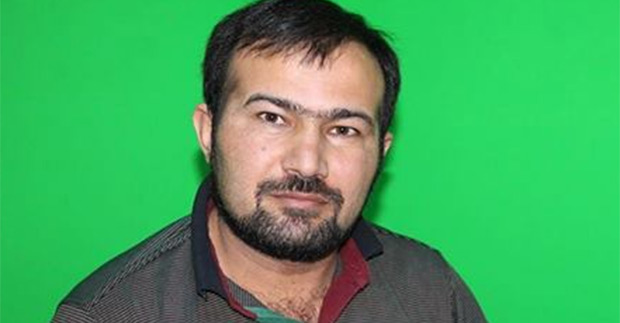
Journalist Seymur Hezi
Seymur Hezi — arrested 29 August 2014 — works for independent newspaper Azadliq and host of the news programme “Azerbaijan Hour”. He is a member of the opposition Popular Front Party. Index reported on January 29 that Hezi was sentenced to a five-year prison sentence on charges of “aggravated hooliganism” on 29 January.
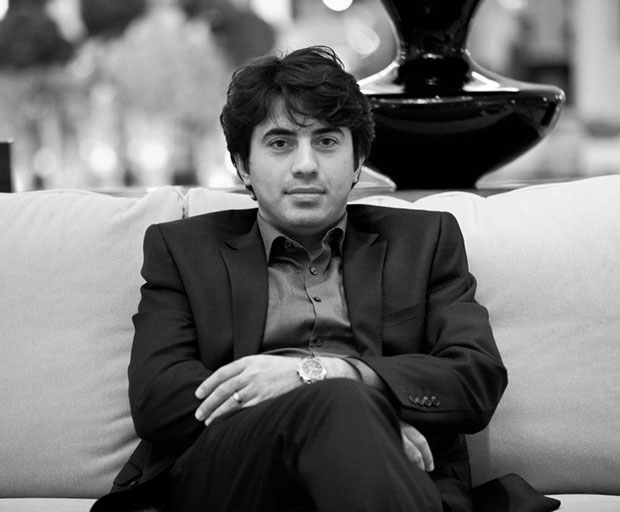
Emin Huseynov, journalist and human rights defender, director of the Azerbaijani Institute for Reporters’ Freedom and Safety (IRFS)
Emin Huseynov — went into hiding in August 2014 — is an internationally recognised human rights defender and leader of the Institute for Reporters’ Freedom and Safety (IRFS). IRFS is the leading media rights organisation in Azerbaijan and one of the main partner organisations of the Human Rights House Network in the country. Huseynov was charged with tax evasion, illegal business and abuse of authority after he went into hiding at the Swiss embassy. Florian Irminger, head of advocacy at the Human Rights House Foundation (HRHF), of which Index is a network member, called on Switzerland to continue to host Huseynov. “His location at the embassy is justified by the level of the repression in the country, the bogus charges brought against human rights defenders in Azerbaijan and the impossibility for them to defend themselves in court, due to the lack of independence of the judiciary and the harassment of their lawyers.”

Khadija Ismayilova
Khadija Ismayilova — arrested on 5 December — is an investigative journalist and radio host who is currently working for the Azerbaijani service of Radio Free Europe/Radio Liberty. She is a member of the Organized Crime and Corruption Reporting Project. She was arrested under charges of incitement to suicide, a charge widely criticised by human rights organizations. Ismayilova is currently being supported by two petition campaigns by Index on Censorship and Reporters Without Borders. On 13 Feb, lawyer Fariz Namazly told Contact.az that new charges have been filed. According to him, Ismayilova is charged under the Article: 179.3.2 (large-scale embezzlement), 192.2.2 (illegal business), 213.1 (tax evasion) and 308.2 (abuse of power.) The charges carry a possible sentence of 12 years.
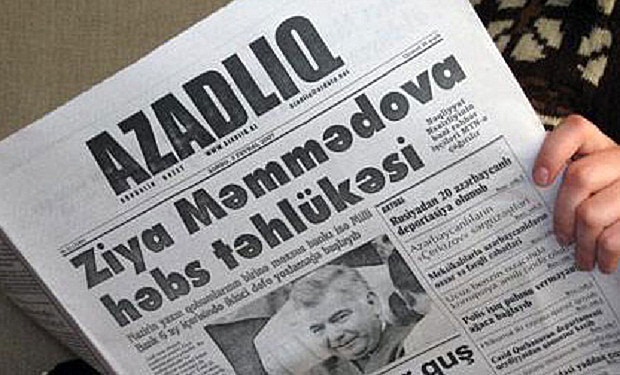
Award-winning newspaper Azadliq was forced to halt its print edition in July 2014 as its bank accounts were frozen. We reported on this in August 2014.
In September, the European Parliament adopted a resolution on the human rights situation in your country.
In November, Nils Muižnieks, the Council of Europe Commissioner for Human Rights, called his autumn 2014 mission to Azerbaijan one of the most difficult of his tenure. He wrote, “In late October I was in Azerbaijan, the oil-rich country in the South Caucasus, which just finished holding the rotating chairmanship of the 47-member Council of Europe. Most countries chairing the organisation, which prides itself as the continent’s guardian of human rights, democracy and the rule of law, use their time at the helm to tout their democratic credentials. Azerbaijan will go down in history as the country that carried out an unprecedented crackdown on human rights defenders during its chairmanship.”
You mention in your letter that individuals are not being arrested for their human rights work but it seems an astonishing coincidence that all these prominent human rights defenders should all be guilty of such an array of financial crimes. And that brings us full circle to the present. Since we received your letter, there have been several developments that we would like to brief you on:
On 29 January 2015, a provisional resolution before the CoE called attention to the cases of investigative journalist Khadija Ismayilova, human rights activist Emin Huseynov and the closure of Radio Free Europe/Radio Liberty. Further on in the resolution PACE was being asked to call on Azerbaijan to properly investigate the murders of journalists Elmar Huseynov (2005) and Rafiq Tagi (2011).
On 3 Feb, President Aliyev signed an amended media law that restricts press freedom by making it easier to shutter media outlets.
Just today, Reporters Without Borders released its World Press Freedom Index 2015, which places Azerbaijan at 162. That’s down 2 spots from last 2014.
We wish Azerbaijan’s commitment to a “free and diverse media” was more than just words and we will continue to report on these detentions – as we do globally – for as long as these words are not translated into action.
Best regards
Jodie Ginsberg
Chief Executive
Index on Censorship